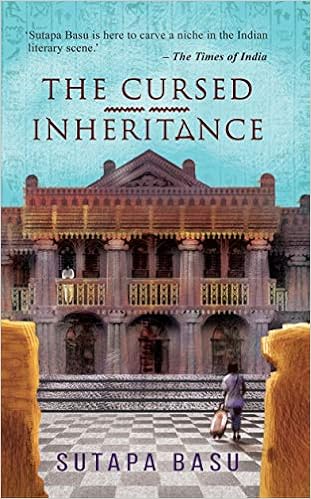A spooky tale, ghosts, spirits, hauntings, or an adventure in the paranormal world would win hands down the choice of a story anywhere, anytime, at any age. Innumerable writers have tried their hand at the ubiquitous ghost story with thumping successes. Nowadays, Indian writers tend to lean towards occidental versions of the supernatural influenced, no doubt, by the kind of viewership powered by OTT platforms. However, Indian ethnology has an extensive range of grey denizens populating the spectral world. For ages, fiction writers of regional literature have cherry-picked through this lineup.
Recently, I went through a Tagore anthology and was absorbed, once again, in stories like The Hungry Stones, Manihara, and Jokher Dhan (Yaksha’s Treasure). All of them set in the transcendental sphere, depict the frustrations, aspirations, grief of these ethereal beings unable to free themselves from their earthly emotions.
Out of these, the tale about the Yaksha caught my imagination, simply because this specific spectre was unknown to me. Jokher Dhan is about an old miser who lures a young boy into a cave where his wealth is buried. The boy pleads to be freed but the man discloses that the boy has to become a Yaksha and guardian of his riches. Callously, the old man seals the cave and ironically, discovers later, that he had buried his own grandson.
As I am prone to do when something haunts me, I began to delve into the antecedents of the yaksha. What came up was intriguing.
Religions in India, whether Hinduism, Jainism, or Buddhism traditionally practise monotheism along with polytheism. Therefore, a pantheon of deities, semi-deities, manifestations, emanations, nature spirits prance around the Absolute. Among them is Kubera, a deity in charge of riches, wealth, and treasures buried under the earth. His adherents are the semi-divine yakshas and yakshinis who help him in this task.
Furthermore, my research revealed that yakshas appeared in Hindu, Buddhist and Jain mythology. In Buddhist literature, yakshas protect the righteous. In Jainism, the Jinas are flanked by a yaksha and yakshini who go through the cycle of life and death like humans but have supernatural powers.
 In Hinduism, yakshas and yakshinis are nature-spirits who can be benevolent or capricious. Linked to water, trees, treasure, fertility, there is a darker version of them, akin to ghosts, who live in the wilderness or on the Ashoka tree. They waylay and devour humans.
In Hinduism, yakshas and yakshinis are nature-spirits who can be benevolent or capricious. Linked to water, trees, treasure, fertility, there is a darker version of them, akin to ghosts, who live in the wilderness or on the Ashoka tree. They waylay and devour humans.
What enthralled me was the role of yaksha and yakshini in the Tantric tradition. Tantraraja Tantra, a mainstream text, identifies yakshas and yakshini as having magical powers, being shape-changers and supernatural species. By soliciting their aid various powers can be acquired by a tantric devotee. They are described as fair, wear fine clothing of different hues, are young and wanton, adorned with garlands of flowers and smeared with orpiment. Apparently, once they are propitiated, they bestow whatever is desired of them.
I discovered that regional literature abounds with tales of yakshas and yakshinis as the central motif. Raconteurs in our country, both in written and oral traditions, have frequently woven tales around such unique phenomena. It is fascinating how immemorial storytellers, balladeers, dramatic and oratory performances delve into the rich Indian literature, mythology, and history to bring to audiences a rendition of our heritage. It is an inspiring attribute of our cultural ambience that I aspire to emulate in my work sometime, someplace, someway.

Sutapa Basu's latest book, The Cursed Inheritance deals with many elements including mystery, horror, and adventure. Sutapa Basu is the author of Padmavati, The Queen Tells Her Own Story (2017, Readomania), The Legend of Genghis Khan, and The Curse of Nader Shah She won the AutHER award for Best Fiction 2019 by Times of India and JK Papers, for her book, The Curse of Nader Shah. She has authored a psychological thriller, Dangle (2016, Readomania) that was nominated for the Anupam Kher Award for Debut Novels in 2017. She is the 2016 First Prize winner of the Times of India’s Write India Campaign. Her short stories have appeared in anthologies, Crossed & Knotted, Defiant Dreams, When They Spoke, and Write India Stories. Her poems have appeared in Kaafiyana and The Dawn Beyond Waste. She is the Director, Learning Solutions at Eupheus Learning.


Comments